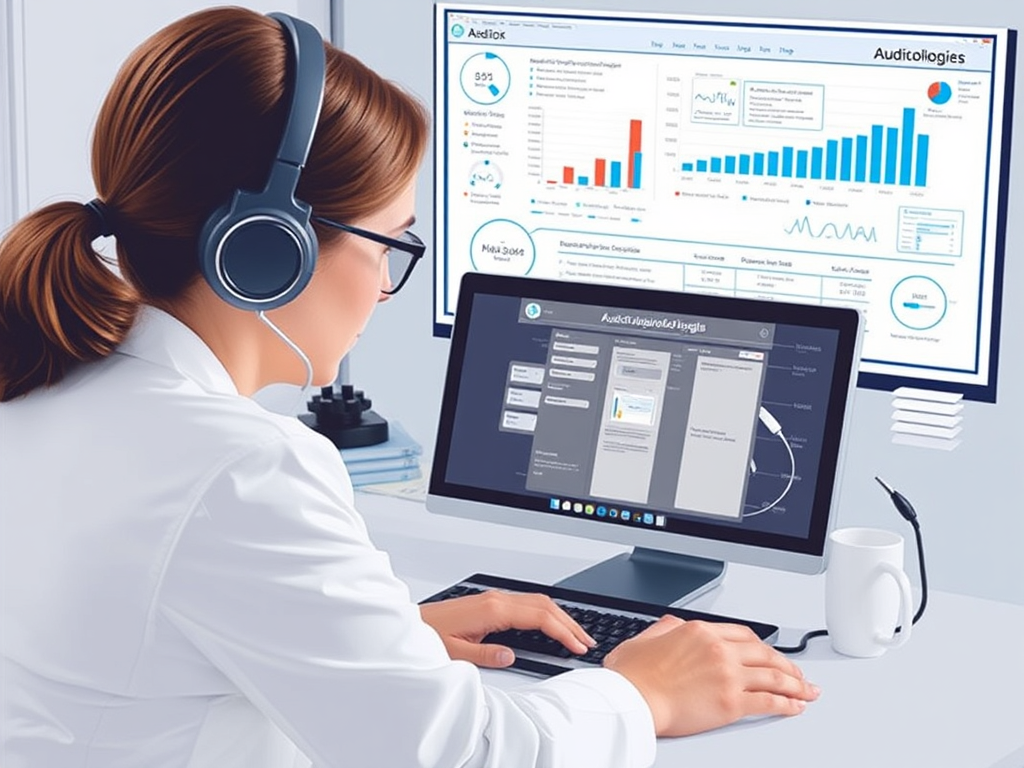When you visit an audiologist for a hearing evaluation or treatment, you may wonder about the sophisticated equipment and tools they use to assess and improve your hearing health. Audiologists rely on various specialized instruments to diagnose hearing loss, fit hearing aids, and provide comprehensive hearing care services. Understanding these tools can help you feel more comfortable during your appointment and appreciate the precision behind modern audiology practices.
Essential Diagnostic Equipment
Audiometers are the cornerstone of any audiology practice. These devices measure your hearing sensitivity across different frequencies and volumes. During a hearing test, audiologists use audiometers to create a detailed hearing profile called an audiogram, which shows exactly where hearing loss occurs and its severity.
Another critical tool is the tympanometer, which evaluates the health of your middle ear and eardrum. This instrument measures how well your eardrum moves in response to air pressure changes, helping audiologists identify issues like fluid buildup, perforated eardrums, or problems with the tiny bones in your middle ear.
Advanced Assessment Tools
Modern audiology practices utilize several sophisticated testing instruments:
- Otoacoustic Emissions (OAE) equipment – Tests the function of tiny hair cells in the inner ear
- Auditory Brainstem Response (ABR) machines – Measure how the auditory nerve and brainstem respond to sound
- Real Ear Measurement systems – Verify proper hearing aid fitting and performance
- Speech mapping technology – Ensures hearing aids amplify speech appropriately
Hearing Aid Fitting and Programming Tools
When it comes to hearing aid fitting, audiologists use specialized computer software and programming devices. These tools allow precise customization of hearing aid settings based on your specific hearing loss pattern, lifestyle needs, and preferences. Hearing aid analyzers test the devices’ performance to ensure they’re working optimally.
Professional-grade probe microphone systems measure exactly how much amplification your hearing aids provide in your ear canal, ensuring the devices deliver the right amount of sound for your hearing loss.
Specialized Treatment Equipment
For patients experiencing tinnitus, audiologists may use tinnitus assessment tools and sound therapy equipment. These instruments help identify the pitch and loudness of tinnitus sounds and provide relief through various tinnitus therapy approaches.
Audiologists also utilize tools for creating custom hearing protection, including ear impression materials and digital ear scanners that create precise molds for earplugs and in-ear monitors.
Maintenance and Repair Tools
Professional audiology clinics maintain workshops equipped with various tools for hearing aid repairs:
- Hearing aid vacuum systems for removing moisture and debris
- Ultrasonic cleaners for deep cleaning components
- Soldering equipment for electrical repairs
- Microscopes for detailed component examination
- Battery testers and voltage meters
CalHearing’s Comprehensive Services
At CalHearing, we utilize state-of-the-art audiological equipment to provide comprehensive hearing healthcare. Our services include thorough diagnostic evaluations, personalized hearing aid fittings, tinnitus management, and ongoing hearing aid maintenance.
Our experienced audiologists stay current with the latest technology and techniques in the field. We serve multiple areas and provide detailed information through our resources section and informative blog to help you make informed decisions about your hearing health.
The Importance of Professional Equipment
The sophisticated tools used by audiologists ensure accurate diagnosis and effective treatment of hearing conditions. Professional-grade equipment provides measurements and adjustments that consumer-level devices simply cannot match. This precision is crucial for achieving optimal hearing outcomes and ensuring your hearing aids perform at their best.
When choosing an audiology practice, it’s important to select one that invests in modern, calibrated equipment and maintains high standards of care. Quality tools, combined with professional expertise, make the difference between adequate and exceptional hearing healthcare.
If you’re experiencing hearing difficulties or need professional hearing services, don’t wait to seek help. The right tools in experienced hands can significantly improve your quality of life and hearing health. Contact CalHearing today to schedule your comprehensive hearing evaluation and discover how our advanced audiological tools and expertise can help you hear better.










